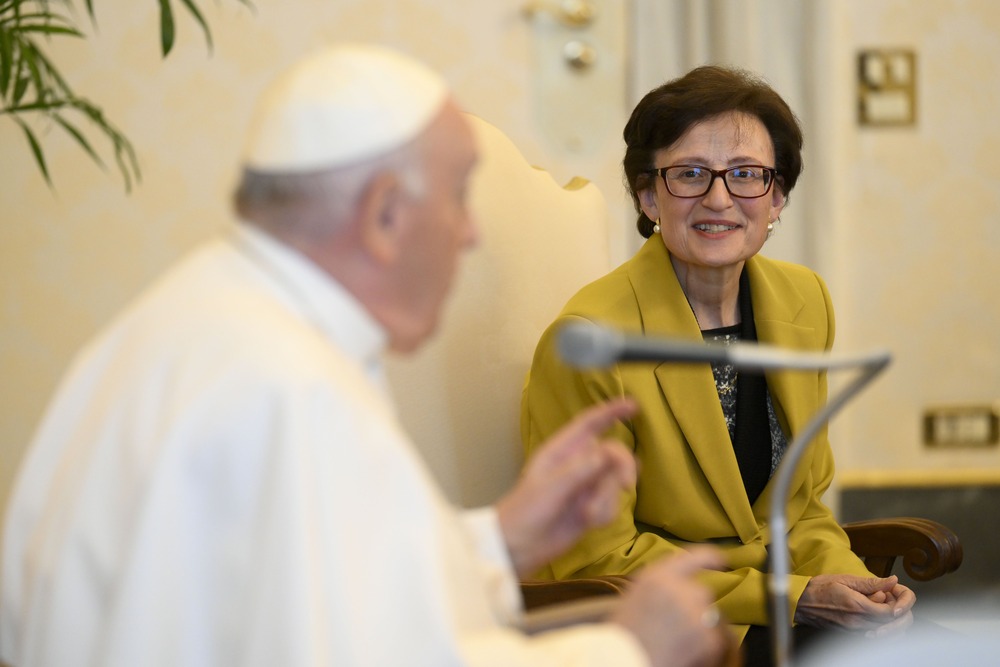
Sister Nuria Calduch-Benages, secretary of the Pontifical Biblical Commission and a member of the Missionaries of the Holy Family of Nazareth, listens as Pope Francis speaks to commission members April 20, 2023, in the library of the Apostolic Palace at the Vatican. (CNS/Vatican Media)
In the Bible, Jesus never explains suffering, but he reaches out to those who are hurting, heals them and ultimately, on the cross, shares and redeems the suffering of all humanity, Pope Francis said.
Jesus "does not approach pain with generic encouragement and sterile consolation, but he embraces the drama, allowing himself to be touched by it," the pope said April 11 during a meeting with members of the Pontifical Biblical Commission.
The Biblical scholars and theologians on the commission explore topics in Scripture studies and interpretation as expert advisers to the Dicastery for the Doctrine of the Faith. At their April meeting, they continued a discussion of "sickness and suffering in the Bible."
Francis said the Bible "is illuminating" on the topic of sickness and suffering, because "it does not leave us a handbook of nice words or a collection of feelings, but shows us faces, encounters and stories — concrete ones."
Jesus' compassion for those who suffer goes even beyond consoling words and miracles of healing, the pope said. He takes human suffering upon himself and, in doing so, saves humanity and "transfigures people's pain."
Advertisement
"Christ has transformed our pain by making it his own to the core: inhabiting it, suffering it and offering it as a gift of love," he said. Jesus did not "give easy answers to our 'whys,' but on the cross he made our great 'why' his own," crying out on the cross, "My God, my God, why have you forsaken me?"
Studying Scripture and praying with the Bible, the pope said, helps people "purify their religious imaginations of mistaken attitudes," including those that "link suffering to divine punishment."
Instead, the Bible teaches people "to follow the path indicated by Jesus: to touch human suffering with one's own hand, with humility, meekness and serenity, in order to bring, in the name of the incarnate God, the nearness of saving and concrete support," Francis said. "To touch, not theoretically, but with the hand."
The pope encouraged members of the commission to continue their study since suffering is an issue that affects everyone.
"The Word of God is a powerful antidote to any closure, abstraction and ideologization of faith," he said. But "read in the spirit in which it was written, it increases passion for God and human beings, triggers charity and revives apostolic zeal. Therefore, the church has a constant need to drink from the springs of the Word."







